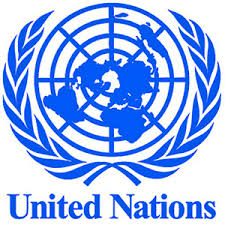The report also stated that although new HIV infections declined to 2 million in 2014 against 3.1 million 14 years ago and in 83 countries the number of new infections has noticeably decreased or remained stagnant, spending on AIDS has dropped.
There are currently 36.9 million people living with HIV around the world, and around March this year, 15 million of them were accessing antiretroviral therapy.
UNAIDS said further increases and efficient reallocation were needed to address the “increased need of earlier initiation of antiretroviral therapy” and called for AIDS spending of $32 billion (29 billion euros) annually between now and 2020 in the hope of eliminating the virus by 2030.
A chunk of the money is also needed to ensure that those affected can gain access to therapy. The UNAIDS boss however said he was hopeful that the next decade would “give us a more effective vaccine”.
2015 is the deadline year for the Millennium Development Goals which in September 2000 rallied the world around a common 15-year agenda to tackle poverty and hunger, prevent deadly but treatable diseases and expand educational opportunities to all children.
Come September, world leaders will gather at the United Nations in New York to adopt a new agenda for sustainable development in which health is a top priority. Sub-Saharan Africa remains the region worst hit by AIDS with 25.8 million people living with HIV, and last year, there were 1.4 million new HIV infections — a 39% drop from 2000.
Merck, UNESCO Others Unite Against Ebola
The United Nations Educational, Scientific and Cultural Organisation; international developer, manufacturer and distributor of pharmaceuticals; Merck & Co. Inc, Cambridge University and the University of Rome have expressed the desire to contribute to building research capacity in the African research community, with special focus on Ebola and emergent infectious diseases.
They have also expressed the desire to identify scientific research priorities for evolving health needs, while they have also identified opportunities to help researchers capitalise on HIV research capacities for emerging infectious diseases in Africa such as Ebola.
They promised to address the vital role of research in the improvement and sustainable development of population health, with specific emphasis on how to translate knowledge into action to improve health and make an impact on society.
All this will be dealt with in-depth at the UNESCO-Merck Africa Research Summit, which will be held on October 19-20 in Switzerland.
A press release distributed by the African Press Organisation on behalf of Merck said the summit would provide a networking platform for dialogue on improving global cooperation on health research and narrowing the disparities in health systems performance between developing and developed countries.
“It will create an African researchers’ network where there will be exchange of experience, knowledge, best practice (especially in Ebola management) and cooperation in future research and development projects,” it stated.
In 2015, the inaugural summit will have a special focus on HIV and Ebola, highlighting how experience gained from investigating the former could inform and drive the rapid understanding of the latter in the recent crisis in West Africa.
Diverse sets of speakers from academia, research institutes, major funding organisations of health/medical research, chairs of medical research councils, NGOs, industry, established and emergent researchers, policy makers, ministries of health and editors of scientific/medical journals, etc., will be participating.
Source: Pulse Nigeria Online

 Noting that there has been remarkable strides with the 1996 advent of antiretroviral drugs, which suppresses HIV, the UN stated that a lot more needs to be done. Global HIV/AIDS body, UNAIDS has said the world needs to dramatically step up investment as well as access to treatment to roll back AIDS.
Noting that there has been remarkable strides with the 1996 advent of antiretroviral drugs, which suppresses HIV, the UN stated that a lot more needs to be done. Global HIV/AIDS body, UNAIDS has said the world needs to dramatically step up investment as well as access to treatment to roll back AIDS.





